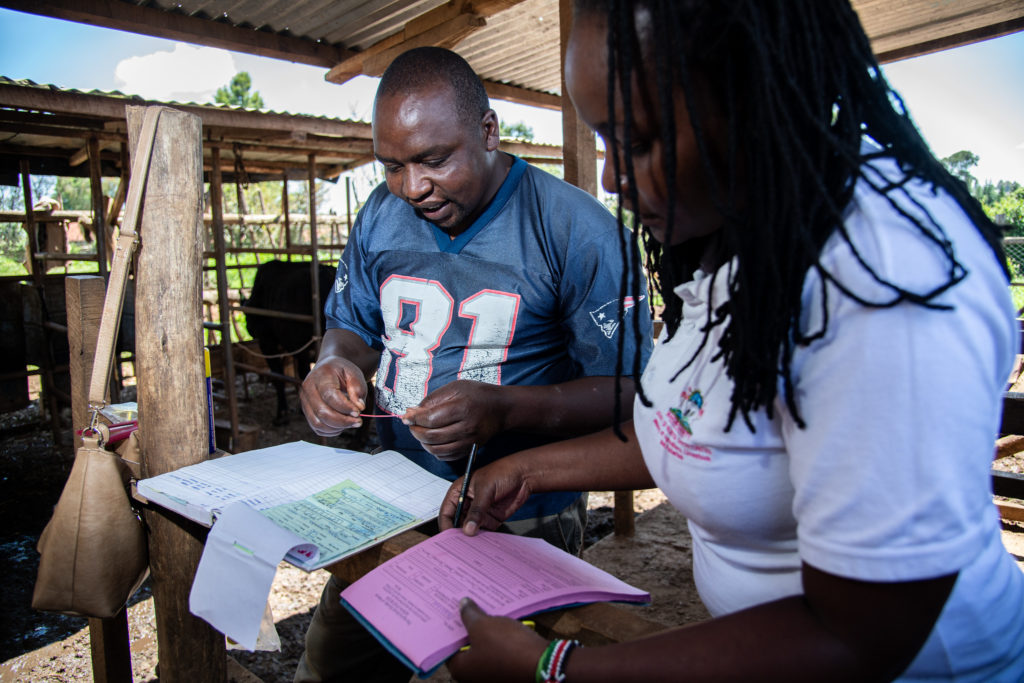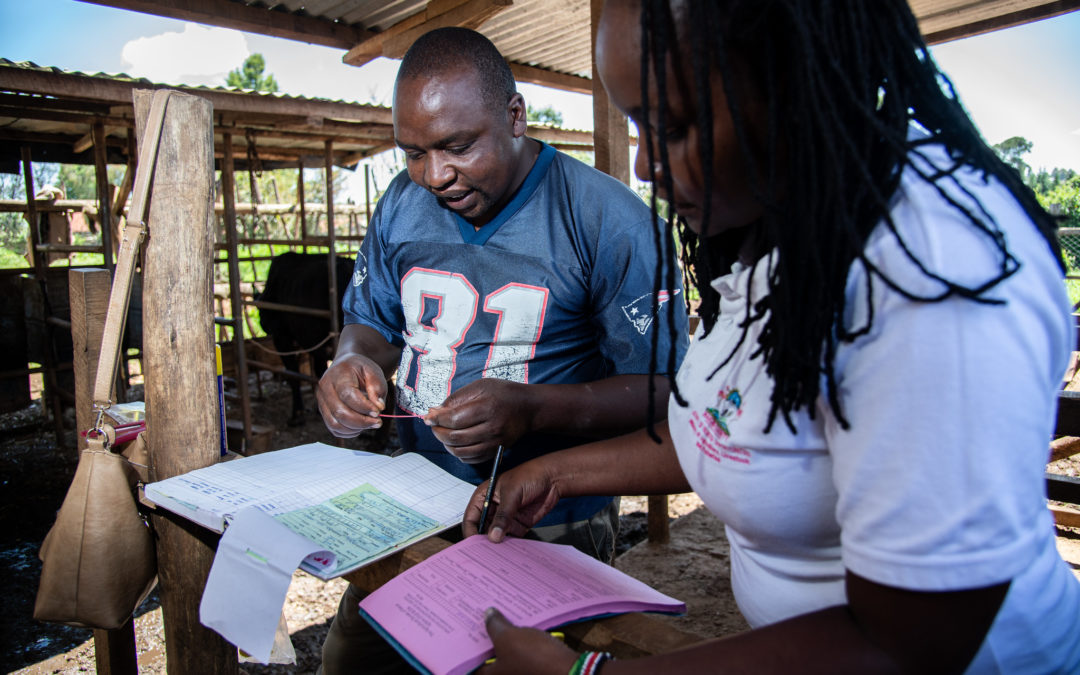COVID-19 and the African livestock sector: What data is needed to respond and adapt?

By Johanna Wong
Food systems on the African continent are fragile, with many already facing food insecurity due to environmental stress, conflict, and livestock disease burdens. Overlay a global pandemic, and the effect on [livestock production and] household food security could be dire. Better data is needed to understand the impact of the pandemic on food security, livelihoods, and livestock health and productivity, and form appropriate responses.
According to the Africa CDC COVID-19 Dashboard, as of 29 July, 893,365 COVID-19 cases and 18,881 deaths have been reported across the African continent, with South Africa, Egypt and Nigeria most severely affected. Containment measures have led to global and local transport disruptions, in turn restricting trade and supplies. This leads to the big question: how can Africa ensure this health crisis does not turn into a food crisis?
African policy makers need reliable data to take action
At the virtual Livestock Data for Decisions community discussion on 27 May 2020, Dr. Simplice Nouala, Head of the Agriculture and Food Security Division at the African Union Commission Department of Rural Economy and Agriculture (AUC-DREA) spoke about the impacts of COVID-19 on the African livestock sector, and what data is needed to respond and adapt.
Watch the recorded discussion
Dr. Nouala recounted a virtual meeting on April 16 hosted by the AUC and the UN Food and Agriculture Organisation (FAO), where agricultural ministers from African Union Member States outlined the steps needed to protect food security. Discussion around five main topics – social protection, the cropping calendar, domestic and regional markets and the impact of the COVID-19 pandemic on existing free trade agreements, and the safeguarding of input chains – led to the development of 14 recommendations (PDF).
Those relevant to livestock include:
- Ensuring the food safety net and providing agricultural inputs so that the production chain is not disrupted.
- Keeping borders open to facilitate the trade of food and agricultural products
- Working on reducing post-harvest losses to reduce food waste
- Ensuring high-quality data is collected and disseminated to governments so that the actual impact of the pandemic on food security is known, and governments can make informed decisions.
On this last point, it is very important to note that limited access to quality data has always been a major constraint to agricultural development on the continent. These long-standing data gaps make it difficult to appreciate improvements where they are being made, or to pinpoint crucial areas where more support is needed. In the face of crises, these gaps become more apparent as the lack of existing, good-quality data hampers the ability of governments and organisations such as the AUC to respond efficiently.
According to Dr. Nouala, the AUC needs reliable data to be able to appropriately support livestock production through COVID-19. Examples of data needed include:
- How many day-old-chicks are needed on the continent to support poultry production? What quantity of genetic materials or breeding stock is required?
- How much animal feed is produced? Are there feed reserves? What is the current demand and what will the demand be if restrictions on movement continue?
- What is the demand for vaccines and veterinary medicines? What are the current supply and stock levels?
- With country borders closed, how many pastoralists are affected and how do we enable their passage?
How can the livestock data community respond?
Initiatives such as Supporting Evidence Based Interventions (SEBI) and the LD4D Community of Practice are working to fill some of these data gaps. By working with the global community, SEBI aims to curate available data from reliable sources and present information in an accessible format at livestockdata.org, enabling decision-makers to better direct resources to support the livelihoods of livestock farmers. At present, LD4D is exploring data sources on African pastoralists to build a better understanding of the specific needs and challenges faced within this community. We have also been compiling a list of livestock initiatives responding to COVID-19.
As for acting on the recommendations outlined above, the AUC and the FAO, in collaboration with African Ministries of Agriculture, have established a Taskforce to guide and monitor the continental response to COVID-19. This Taskforce will report monthly to the African Union’s Specialized Technical Committee on Agriculture, Rural Development, Water and Environment.
Are you currently working on livestock initiatives that are responding to COVID-19? Please fill out our survey!
More information
- African Union COVID-19 Surveillance Dashboard
- Four reasons why livestock data matter in the COVID-19 crisis – SEBI News
- Livestock Data and COVID-19: Call for community inputs – Livestockdata.org
Stay in touch
- For the latest information on LD4D activities, sign up to the newsletter, follow @LD4D_Community on Twitter or join our LinkedIn group!
Dr. Johanna Wong is a Researcher with SEBI (Supporting Evidence Based Interventions), based at the University of Edinburgh’s Royal (Dick) School of Veterinary Studies.
Header photo: ILRI/ Georgina Smith (source)
July 31, 2020
LivestockData.org News





